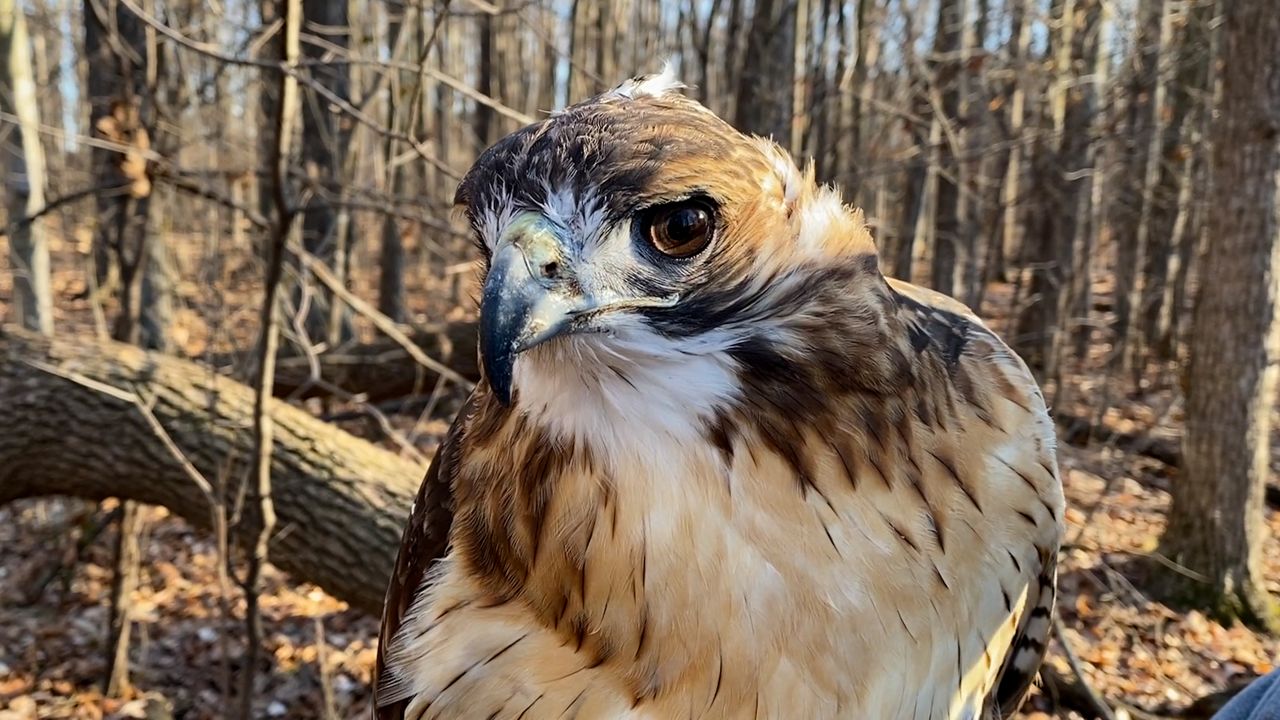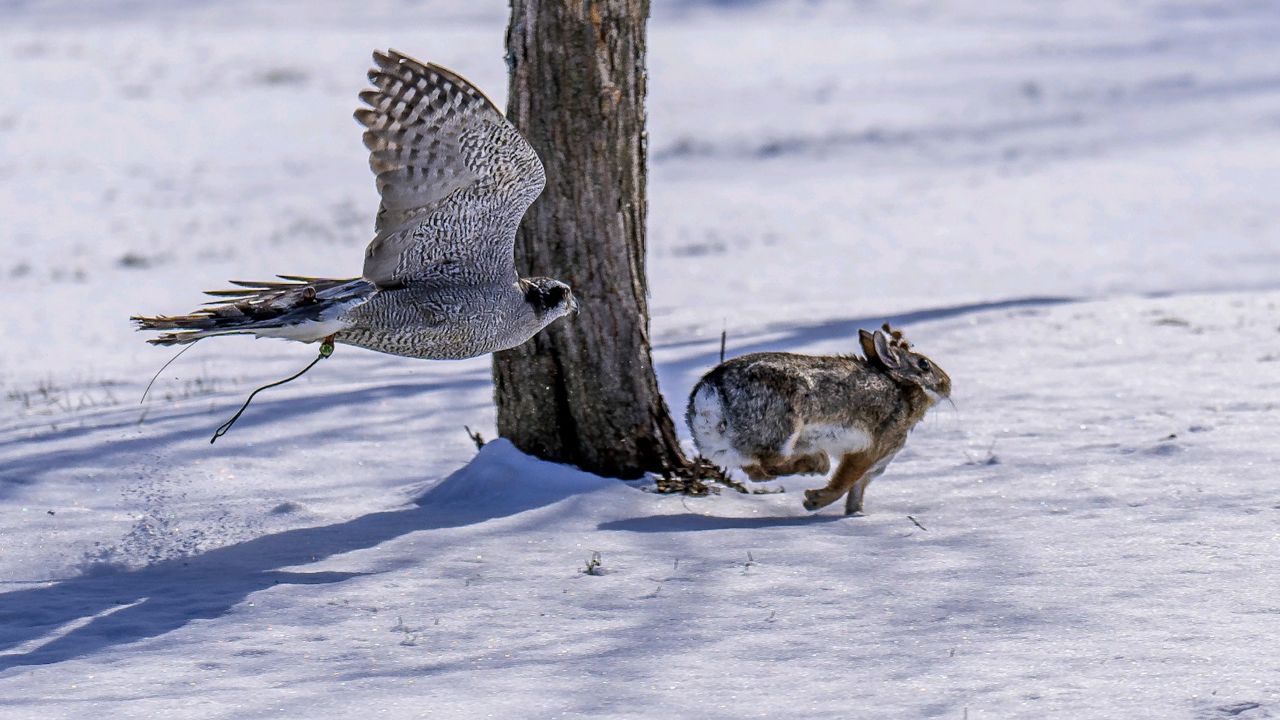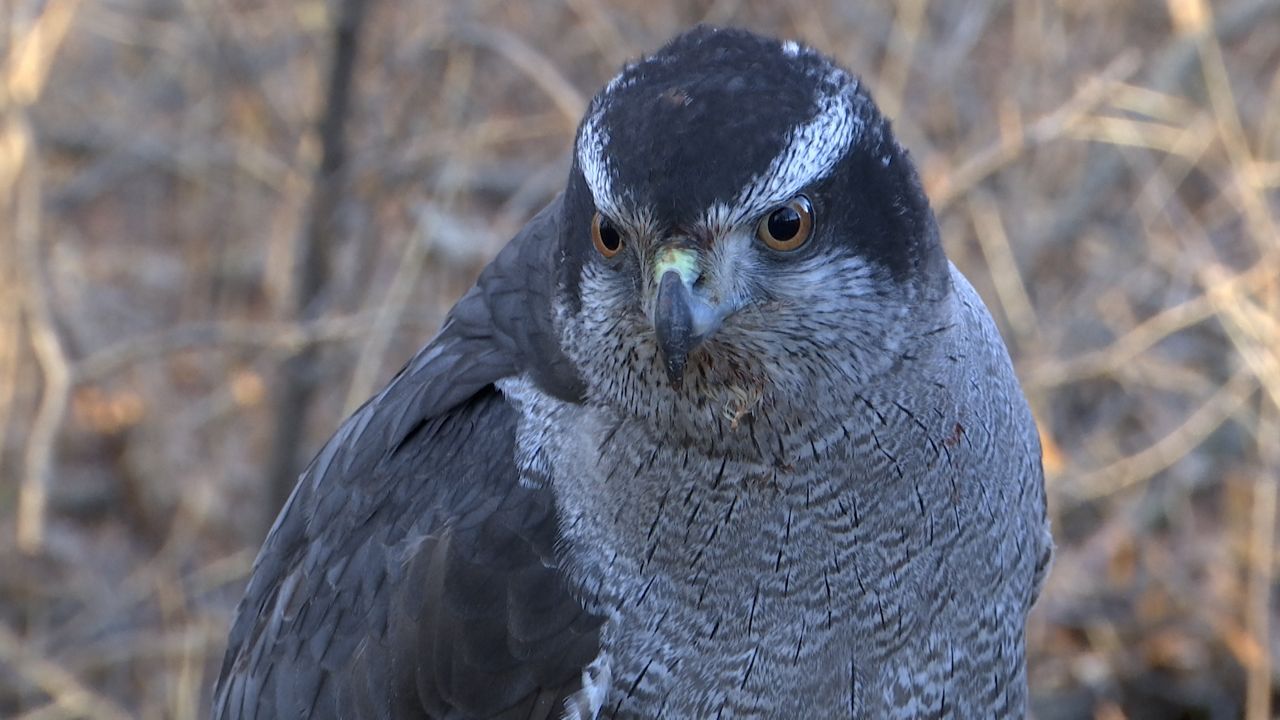APPLETON, Wis. — When Frank Ujazdowski and one of his hawks enter a wooded area together, they’re both excited for some hunting.
“This is such a unique sport. It’s just really a privilege to take a bird out of the wild and have it be your hunting partner and work together as a team,” said Ujazdowski.
He started with falconry 13 years ago and now serves as the president of the Wisconsin Falconers Association.
“It’s the art of taking game in a natural environment with the aid of a bird of prey,” explained Ujazdowski.
After walking into a small wooded area in Appleton near a business park, he lifted the hood from his red-tailed hawk’s head.

Ujazdowski said that falconers tend to prefer hunting in similar wooded areas in or around cities, where natural predators for small game aren’t as abundant.
With the hawk looking down from the trees, Ujazdowski worked to flush out prey.
“We’re a team. We work together. I try to flush game for her, and I stimulate game that she might not see if I wasn’t in the woods, but then she’ll catch a squirrel or a rabbit that I could never catch because she’s up in the tree,” said Ujazdowski.
His wife named the hawk Takaya, but he just calls it bird.
It didn’t take bird long to make her first strike.
“There’s a squirrel,” said Ujazdowski. “Yep, she just got it off the tree.”
The intensity of the hawk diving towards a tree to snatch a squirrel may be routine for Ujazdowski, but for the uninitiated, the elements of speed and surprise were a sight to behold.
Ujazdowski raced to secure the squirrel and allowed the bird to eat some of its catch.
“That little bit of food is right there, in her crop. So we’ll put her hood back on her,” said Ujazdowski.
He estimated there are about 100 falconers in Wisconsin and 5,000 across the country.
Much of the food he and his birds harvest gets frozen to feed his birds in the off-season when they don’t hunt.

“We eat some of the rabbits and some of the early young squirrels we catch. My wife likes wild game, so we both eat it, but the bird gets the majority,” said Ujazdowski.
Falconers start as apprentices and require a sponsor. After two years, they may become a general. It takes at least seven years to earn the rank of master, like Ujazdowski.
He’s had his red-tailed hawk for five years and plans to release her back into the wild this spring.
“She’s going to go back into the wild and make some baby hawks. I feel like she has a good chance to find a mate and be proficient in the wild because of what she’s got in her toolbox right now,” said Ujazdowski.
He said life in the wild is tough for hawks due to factors like owl predation, electrocution from power lines, vehicle strikes, disease and starvation.
After securing two squirrels with his red-tailed hawk, he moved to another lot and brought out his goshawk (pronounced Goss-Hawk). She’s named Macy, but he also calls her bird.

“They’re not our pets. They don’t love us. They don’t reason like that. They don’t look forward to us coming home or anything like that,” explained Ujazdowski. “When she sees me driving in the driveway, she squawks at me because she knows either I’m going to feed her or we’re going out hunting to catch game.”
The goshawk gave chase to a rabbit and a squirrel, but didn’t pursue them hard. Ujazdowski said he doesn’t starve his birds before hunting, so she may not have felt the need to capture food.
“They’re driven to hunt, but if she feels like she doesn’t have to work that hard to catch a meal, she just won’t do it,” said Ujazdowski.
He called falconry his favorite type of hunting and hopes his grandchildren will take up the sport. For Ujazdowski, it’s a working relationship that helps protect the bird for a time and fulfills his passion for falconry and enjoying the outdoors.



